Latest News
Abbas, Shahzad give Pakistan hope of defending 147

The first Test match at Centurion is tantalisingly poised after Pakistan took three wickets in nine overs to leave South Africa wobbling at 27 for 3, still 121 runs away from the 147-run target that seals a win, as well as a place in the 2023-25 World Test Championship [WTC] final.
After South Africa had bowled Pakistan out for 237, they needed a fairly comfortable 148 to secure victory, but an unerring spell of accurate medium-fast bowling from Mohammed Abbas and Khurram Shahzad was well rewarded. Aside from Aiden Markram , the South Africa batters were somewhat timid in their approach to the last few overs of the day, while Abbas and Shahzad targeted the pads. Abbas brought one to jag back in sharply into Tony de Zorzi for the first breakthrough.
Pakistan’s reviewing was chalk and cheese from the previous innings, successfully overturning two lbw calls. Shahzad found similar seam movement from around the wicket to strike Ryan Rickleton on the front pad, viciously enough that it hit him in line despite the batter having moved well across.
Having successfully overturned that one, Pakistan repeated the formula, with Abbas finding the right line and adequate sideways movement, which has seen him find bouts of high success. Tristan Stubbs took a step out of his crease but was beaten on the outside edge, and yet again Pakistan went up collectively for the umpire to turn them down. But Shan Masood signalled to go upstairs once more and was proven right again.
Earlier in the day, Marco Jansen’s six-wicket haul had helped South Africa tighten their control over the game. He picked five wickets in the afternoon as Pakistan squandered a promising start following a rain delay that wiped out the morning session. He picked one more in the final session as the hosts returned to polish off the Pakistan tail after stubborn resistance from Saud Shakeel.
Babar Azam and Shakeel put on 79 for the fourth wicket, with Babar reaching his first Test half-century in nearly two years, but holed out to deep point immediately after. Mohammad Rizwan was squeezed down leg as Pakistan crumbled around Shakeel.
Persistent rain saw the game start an hour after the lunch break concluded, and Pakistan began by taking advantage of a bowling effort that was nowhere near its best. Shakeel and Babar each worked Kagiso Rabada away for four in the third over, and the runs flowed for the next half an hour. Twenty-three runs came off the next three, and though Babar still found himself beaten a few times, he was also finding the timing that in the past was so often a precursor to a big score.
Corbin Bosch found that out when he missed his line twice and Babar helped himself to two fours, before a clip into the covers brought up his long-awaited half-century, his first in 20 innings. But he threw it away disappointingly, failing to get on top of a short and wide one from Jansen, Bosch barely having to move to send a devastated Babar on his way.
Jansen was finding the wickets that eluded him in the first innings, with Rizwan and Salman Agha falling cheaply. A brief stand between Shakeel and Aamer Jamal once more gave the impression Pakistan would go into tea six down, before Jamal lobbed a tame Dane Paterson bouncer straight to deep midwicket, and Naseem Shah helpfully nicking Rabada into the slips.
Shakeel attempted to farm the strike post-tea and would enjoy some success as wayward bowling allowed for the odd boundary and comfortable late-over singles. A regal pick-up for six over midwicket was the highlight, but Pakistan’s penchant for gifting wickets to deliveries that did not merit them struck again when a knee-high full toss rapped into Shakeel’s front pad and effectively concluded Pakistan’s batting effort.
It appeared to be the final nail in the coffin, but Pakistan’s bowlers have seen to it that South Africa do not rest easy overnight.
Brief scores:
South Africa 301 and 27 for 3 (Aiden Markram 22*, Mohammed Abbas 2-3) need another 121 runs to beat Pakistan 211 and 237 (Saud Shakeel 84, Babar Azam 50; Marco Jansen 6-52, Kagasio Rabada 2-68)
Latest News
“The success of the “Clean Sri Lanka” initiative depends solely on the active participation of the public” – President
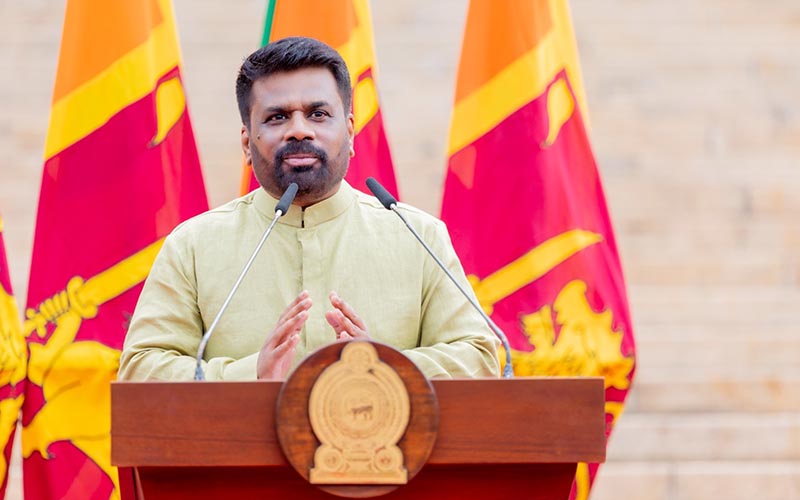
President Anura Kumara Disanayake stated that the success of the “Clean Sri Lanka” initiative depends solely on the active participation of the public.
The President made these remarks today (01) at an event held at the Presidential Secretariat to inaugurate the “Clean Sri Lanka” program.
During his address, President Disanayake further elaborated:
“We believe that as 2024 concludes and we step into 2025, the dawn of a new year presents us with a critical question. Despite decades of similar beginnings, have we truly embraced renewal for the betterment of our nation? Or have we regressed, adapting only to perpetuate past failures? This question confronts us as we welcome the New Year. Our firm resolution is to usher in transformative change for our country this year. This is both our challenge and responsibility, and we are fully committed to fulfilling it.
Together with my cabinet, deputy ministers, and the entire political leadership, we are dedicated to this cause. This year marks the start of a new political culture in our country, as we lay the necessary foundations for its development. We aim to abolish practices such as nepotism, the abuse of power against the people, and the creation of a political elite that prioritizes personal interests over the public good. Instead, we are committed to a political culture aligned with the aspirations of the people.
Economically, we recognize the severe challenges our nation has faced in recent years, leading to a state of near-collapse. Over the past year, we achieved some stability on the surface level of the economy and officially emerged from bankruptcy in the latter half of the year. This progress is owed to the immense efforts of officials from the Ministry of Finance, the Central Bank, and the political leadership. However, surface-level stability is not enough. This year, we will implement an economic policy framework aimed at addressing the deeper structural problems within our economy.
Our country has also faced various security threats over the years. It is with great confidence that we can now assure our citizens of a robust and secure national defence. Last year, reports surfaced regarding a potential attack cantered on Arugam Bay. Our police, intelligence services, and armed forces acted decisively to maintain the nation’s security and instil public trust. We have also begun systematically reinstating the rule of law, which had been neglected for far too long. In the past, criminals, corrupt individuals, and even political authorities operated above the law, disregarding constitutional principles. In some instances, former presidents were found guilty of constitutional violations by the Supreme Court. In such a context, the rule of law had become merely an abstract notion.
To re-establish and strengthen the rule of law, we are making significant efforts. Our country has been plagued by widespread corruption, malpractice, and inefficiency within the state apparatus, political institutions, and society as a whole. Corruption has become a malignant cancer spreading throughout our nation, and eliminating it requires a tremendous collective effort. The Attorney General’s Department has a critical role to play in this endeavour, and I trust they will perform their duties with the necessary diligence and support.
Similarly, institutions such as the Criminal Investigation Department and the judiciary bear the principal responsibility for transforming our country into one free from corruption and fraud. We believe these institutions will act with the dedication required to achieve this transformation. As political leaders, we are committed to setting an example through both our words and actions.
However, leadership and intervention from the political sphere alone will not suffice. Relevant state institutions must understand their responsibilities and contribute actively to this process of change.
Therefore, I call upon all relevant institutions and officials to provide their unwavering support. This collective effort is vital for the transformative progress our nation needs in the coming year.
To construct any strong building or initiate any successful project, a solid foundation is essential. Our nation, however, is one that has lost its foundation. For this reason, we have focused our initial efforts on successfully establishing the fundamental groundwork required to rebuild this country. This foundation encompasses political authority, state mechanisms, the rule of law, respect for and protection of the Constitution, and a rejection of corruption, fraud, and bribery. These elements form the bedrock necessary to advance the nation. We are rapidly and systematically laying this foundation. The benefits of the robust economy built on this foundation must flow to our citizens.
Our government is focusing on three main projects, or key objectives, to lead this initiative. The first priority is to rescue our country and its people. Economic reforms are being formulated to ensure that economic benefits reach rural communities, as an economy concentrated in the hands of a small group can never bring stability to society. Such an imbalanced economy fosters instability for the nation and its people. Therefore, achieving economic stability requires extending economic benefits to rural populations.
With the upcoming budget, we aim to steer economic programs toward the eradication of poverty in our nation. Our second goal is to embrace digital transformation. By establishing a foundation for digitalization, we seek to minimize inefficiency and corruption while enabling citizens to interact seamlessly and effectively with state mechanisms.
The third major initiative is the “Clean Sri Lanka” project. This endeavour goes beyond merely cleaning up the environment. It aspires to restore the deeply eroded and deteriorated social and environmental fabric of our motherland. We aim to create cleanliness and rejuvenation across all sectors of society.
Allow me to highlight a few critical issues to emphasize the importance of these efforts. Sri Lanka is endowed with an exceptionally beautiful and vital environment. Our strategic geographic location is a significant advantage, and visitors often remark on the stunning beauty of our country. However, despite this natural wealth, Sri Lanka faces grave challenges.
In 2023 alone, 181 people lost their lives in human-elephant conflicts, and 484 elephants were killed by human action. Although we possess an aesthetically and ecologically rich environment, we are a nation where 484 elephants die annually. Furthermore, floods and landslides displace significant populations; resulting in loss of life, and cause substantial economic damage.
Restoring our environmental system must become a core focus of the “Clean Sri Lanka” program. Our nation and its people need a new value system. We have mistakenly elevated incorrect values to positions of importance, embedding them as the fundamental ethos of our society. It is crucial to establish a new framework of values.
Where do we begin? The first step must be cultivating an appreciation for one’s own life. Sadly, many of our citizens lack a sense of self-worth or value for their lives. I say this because, in the past year, 550 people drowned, whether in the sea, reservoirs, wells, or ponds. A total of 2,321 people died due to such incidents. These figures highlight the urgent need to foster respect for life in our society.
On average, approximately seven people lose their lives daily due to road accidents in our country. This reflects the emergence of a society that lacks a sense of value for life; one where individuals have little regard for their own lives or the lives of others. It is a society devoid of empathy, concern, and consideration for one another.
Therefore, it is essential to heal our society and introduce a new system of values and principles. Under the ‘Clean Sri Lanka’ Initiative, we aim to establish these new values and systems. Minimizing road accidents is a priority. To achieve this, my trust lies first and foremost in the citizens rather than the law. Citizen participation and engagement are vital. If citizens fail to comply, we are prepared to enforce the law. However, we are committed to driving this transformation with a thoughtful, inclusive and adaptive approach. Nonetheless, if any one obstructs this progress, we are equally ready to act decisively and assertively to ensure the recovery and well-being of our society.
Furthermore, it is essential to address the concerns of our citizens regarding the safety and quality of the food they purchase from the market. As a state, it is our responsibility to provide food that is free from harmful substances.
The Clean Sri Lanka initiative encompasses the responsibility to act towards these goals. Furthermore, as a society, we must care for our citizens, including those with disabilities. This is a matter of social justice. Can we marginalize individuals simply because they have grown old? Can we exclude those with disabilities from society, treating them as outsiders instead of equals? A society that does so can never truly be considered a just or compassionate one. If we lack empathy and compassion for the disabled community, the elderly, and the women and youth in our midst, we fail to nurture and uphold a sense of collective care. Such a society will become one characterized by cruelty and indifference toward one another. Therefore, we must cultivate a new social mind-set that prioritizes inclusivity and compassion.
Additionally, the protection of public assets is vital. For a long time, Sri Lankan citizens held a deep respect for public property. However, in recent times, there has been a shift where people protect their personal possessions but neglect the preservation of national resources and public goods. This stems from a lack of understanding about the intrinsic value of these shared assets.
A state must ensure that all citizens recognize the importance of safeguarding national resources—not just for their benefit but for the benefit of future generations. These resources are not exclusively ours to exploit or destroy. Our generation has a responsibility to protect and preserve them for those who will come after us.
It is within this framework that the Clean Sri Lanka initiative is prepared to act. Moreover, we understand that the government machinery and political authorities must function with efficiency and urgency. Every citizen must take responsibility for fulfilling their respective duties to ensure the success of this collective vision.
If responsibility is neglected, the weight of that responsibility will inevitably cause the system to collapse. The strength and stability of this structure are built upon various frameworks, including government, political, and private sectors. When members of these frameworks fail to fulfill their assigned responsibilities, it leads to significant harm to the system as a whole. Therefore, we urge, particularly from the state sector, to be prepared to uphold your duties with diligence and commitment. Numerous examples today highlight the importance of responsibility and selfless service. Many critical institutions in Sri Lanka, vital to economic progress and national security, are led by individuals who voluntarily take on significant responsibilities.
The Chairperson of Sri Lankan Airlines, the Chairperson of Sri Lanka Telecom, the Chairperson of the Port City, the Chairperson of the Board of Investment, and the Chairperson of the Gas Company, among many others, are professionals with exceptional skills and expertise. These individuals have stepped into their roles within our institutions to serve voluntarily, without any personal financial gain. Additionally, on a personal level, I have three advisors who also contribute their knowledge and expertise without receiving a single rupee as remuneration from the government.
On a personal note, my own three advisors work without receiving a single rupee in compensation from the government. These examples of selfless dedication serve as powerful reminders of the impact individuals can make when they place national progress above personal gain.
Sri Lanka is fortunate to have some of its most brilliant minds contributing voluntarily to national progress. Among them is a distinguished expert in digital transformation with extensive experience in the field. Having conducted ground-breaking research in science and technology at a leading American university, this individual is now working selflessly for the betterment of our nation.
Similarly, an expert with practical experience in economics, who has accumulated invaluable insights, has chosen to dedicate their time and expertise voluntarily. These are the kind of leaders our country needs—visionaries with fresh perspectives and transformative ideas. They are not driven by monetary gain or personal benefit but by the desire to serve the nation. These individuals have set aside their prestigious careers and dedicated their knowledge, time, and effort to rebuild our country, serving as an extraordinary example of selflessness and commitment.
A remarkable example has been set for our country. Because of this, I am telling you that we have been given an opportunity to rise. I do not consider this the final opportunity, because there are no “final moments” for people there are only opportunities. Today, as a nation, as a country, we have the chance to rise.
What I ask of the citizens of this country is this: Will you let this opportunity slip away, or will you seize it with determination and use it to rebuild our country and our nation? Are you ready to fulfil your duties and contribute to this cause? This is the question I am asking you.
Is this responsibility solely that of the government? Is it just a political manifesto? No. This is a collective effort. Throughout history, various nations around the world have faced challenges at different times. I don’t believe that any nation has ever gone through its journey without facing challenges from the beginning to the present. Every country has faced its unique set of challenges at various points in time. However, in each case, the political leadership, state machinery, and collective effort of the citizens have come together to overcome these challenges.
We don’t need to go far back in history. If we think of just the last century, we can see how many countries in Asia rose up in unity based on the message of collective effort. But what have we done? Instead of rising together, we have fostered distrust among ourselves, allowing nationalism, religious extremism, and divisive political battles to undermine our society. We’ve let mistrust, anger, and hatred grow among us through divisive politics. If the people are never ready to rise together, we will never have the chance to overcome these challenges. Therefore, the opportunity has presented itself. We now have the chance to rise up and take this opportunity.
We are ready to put an end to all divisions. As people born in the same Sri Lanka, we are prepared to come together and work collectively to build this country. Therefore, especially the success of the ‘Clean Sri Lanka’ program will depend solely on the active participation of the people. Without that, this cannot be achieved merely by laws imposed by the government or by officials appointed by the government. It is only through the collective effort of the public that we can make this a success.
A government mechanism is needed for this. Already, a task force of about 18 individuals has been appointed towards this end. I want to emphasize that everyone is working voluntarily. Furthermore, we hope to establish a Clean Sri Lanka Secretariat for this purpose. We also aim to form a Clean Sri Lanka Council to bring the people together for this cause, throughout the country. Ultimately, this is not a project that will conclude at a specific time. It is a continuous program that adapts to new global circumstances and is a part of the effort to restore governance within society. This is not a one or two-year project. If it were a project, it would be something that could be completed in one place, but the world is rapidly changing, and significant global victories are being achieved.
Social values, new principles, and fresh systems are continuously evolving. All of these elements are contributing to the formation of a new Sri Lankan nation in this country. For this cause, we are establishing a separate fund to support this effort. Citizens of this country will have the opportunity to contribute to this fund. The Ministry of Finance has appointed a supervisory board to oversee it. Therefore, this work is a collective effort that we must carry out to succeed, and we invite everyone to join in. By working together, we can accomplish this with great success. May this year be a prosperous new year for everyone.
Thank you very much.”
[PMD]
Latest News
New leader’s promises will be tricky to keep in crisis-hit Sri Lanka
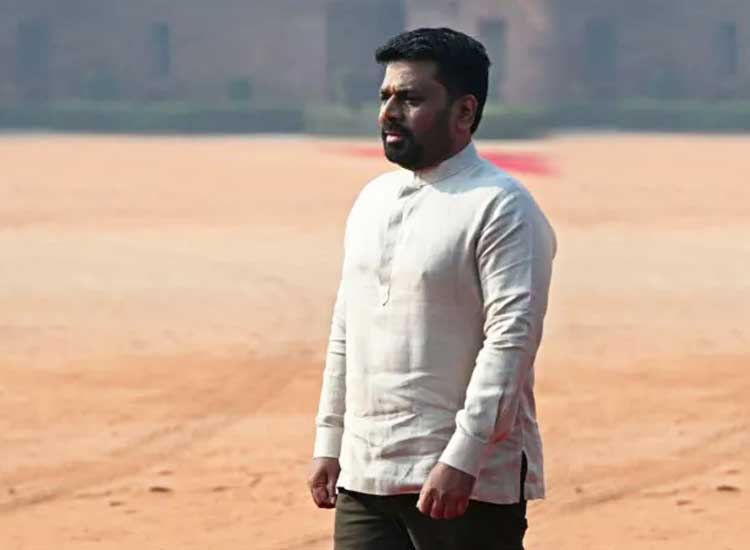
Stunning election wins by a new left-leaning president and his party have changed Sri Lanka’s political landscape – but the cash-strapped island’s new rulers are quickly realising that campaign promises are easier to make than to keep.
Anura Kumara Dissanayake’s remarkable victory in the presidential election in September was swiftly followed by a landslide for his National People’s Power (NPP) alliance in parliamentary elections.
As a new year starts, he and his supporters want this to be a turning point for the country, which is trying to recover from devastating economic crisis and years of misrule.
However, they have limited room for manoeuvre to make good on pledges to voters, whose expectations from the new government are high.
Since the financial meltdown of 2022, economic recovery has been fragile and Sri Lanka is far from out of the woods.
The NPP won 159 seats in the 225-member assembly in November – an unprecedented two-thirds majority – giving Dissanayake a sweeping mandate to push through major economic and constitutional reforms.
However, even as the results were coming in, the new president had to gear up for a meeting with a visiting delegation from the International Monetary Fund (IMF), with which the outgoing government had negotiated a $2.9bn (£2.31bn) bailout package. The IMF deal became controversial as it led to severe austerity measures, tax rises and cuts in energy subsidies – hitting common people hard.
During the campaign Dissanayake and his alliance promised that they would re-negotiate parts of the IMF agreement.
But in his address to the new parliament, he performed a U-turn. “The economy is in such a state that it cannot take the slightest shock… There’s no room to make mistakes,” Dissanayake said.
“This is not the time to discuss if the terms [of the IMF loan] are good or bad, if the agreement is favourable to us or not… The process had taken about two years, and we cannot start all over again.”
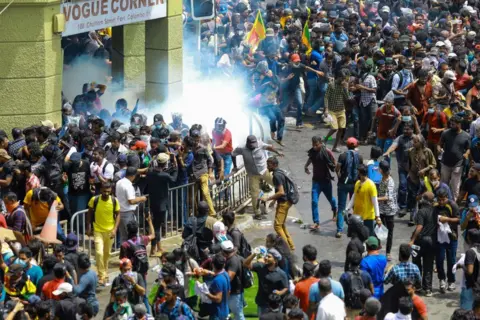
The voters’ overwhelming verdict for the NPP is seen as the culmination of a people’s uprising triggered by the economic crisis. The uprising toppled president Gotabaya Rajapaksa in the summer of 2022, when Sri Lanka ran out of foreign currency and struggled to import food and fuel.
The country had earlier declared bankruptcy after defaulting on its external debt of about $46bn. India, China and Japan are among those who have loaned billions of dollars.
The recent election results also reflected people’s anger towards established political parties – of former presidents Mahinda Rajapaksa and Ranil Wickremesinghe and others – for failing to handle the economic meltdown.
“One of the priorities for Dissanayake will be to give some economic relief to the people due to excessive taxation and the cost-of-living crisis. Debt management is another big challenge,” veteran political analyst Prof Jayadeva Uyangoda told the BBC.
So far the massive political changes don’t seem to have had any impact on people like Niluka Dilrukshi, a mother-of-four who lives in a suburb of the capital Colombo. Her husband is a daily-wage labourer and the family still find it hard to get by.
The BBC spoke to her about the soaring cost of living in January 2022, months before mass protests erupted. At that time, she said her family was eating only two meals a day, instead of three, and they were giving only vegetables and rice to their children due to the high cost of fish and meat.
“We are still struggling to make ends meet and nothing has changed. The price of rice, which is the staple food, has increased further. We are not getting any relief from the government,” Mrs Dilrukshi said.
People like her want the new government to take immediate steps to bring down the cost of essentials. Sri Lanka is an import-dependent nation, and it needs foreign currency to bring in items like food and medicine.
For now, Colombo is able to hold on to its currency reserves as it has suspended its debt repayments.
The real struggle, experts point out, will start probably in the next three or four years when it starts repaying its debt.
People’s perception of President Dissanayake and his new government could change if there’s no visible change in their standard of living in the next two or three years.
“People have given him a huge mandate. The IMF should respect that by allowing him to give some relief to the people through social welfare programmes,” says Prof Uyangoda.
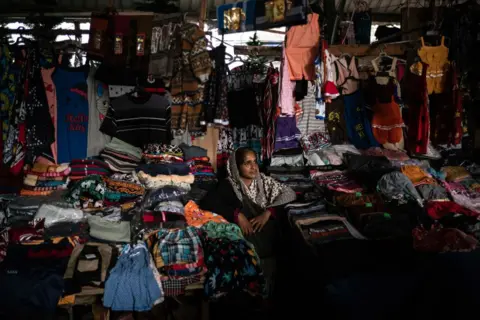
Dissanayake must also contend with India and China, which are jostling for influence in Sri Lanka, where both have invested heavily in recent years.
“Both India and China will try to bring Colombo under their sphere of influence. I think the new government’s foreign policy will be very pragmatic without aligning with anyone,” says Prof Uyangoda.
In a careful diplomatic manoeuvre, Dissanayake chose Delhi as his first official overseas destination in mid-December. During the visit, India promised to supply liquefied natural gas for Sri Lankan power plants and work on connecting the power grids of the two countries in the long run.
China’s increasing foothold in Sri Lanka, especially calls by Chinese “research” vessels to the island’s ports – so close to India’s southern tip – has triggered concern in Delhi.
“I have given an assurance to the prime minister of India that we will not allow our land to be used in any way in a manner that is detrimental to the interest of India,” Dissanayake said after talks with Narendra Modi. Delhi will no doubt be pleased with the assurance, but Dissanayake will find out what Beijing expects when he visits China in mid-January.
[BBC]
Latest News
India need a win in Sydney to stay in contention for WTC final

Australia
If Australia win the Sydney Test against India, they are through to the WTC final regardless of results in Sri Lanka – if Australia were to win in Sydney but lose both Tests in their upcoming series in Sri Lanka, they would finish on 57.02 percentage points to India’s 50 and Sri Lanka’s 53.85.
A draw in Sydney will keep them ahead of India, but it would leave the door open for Sri Lanka to sneak through; if Australia were to draw in Sydney but lose both Tests in Sri Lanka, they would finish on 53.51, while Sri Lanka would climb up to 53.85.
If Australia were to lose in Sydney, they would need one win in Sri Lanka to qualify. A 1-1 verdict in Sri Lanka after losing in Sydney would leave Australia on 57.02 to India’s 55.26. If Australia draw both Tests in Sri Lanka after losing in Sydney, India and Australia will be level on 55.26, but India will qualify on the basis of having won more series in this WTC cycle.
India
Percent: 52.78; matches remaining: Australia (1 away)
India need to win in Sydney to stay in contention for the WTC final. A win would take India to 55.26, which would be enough for them to finish second if Australia were to achieve no more than two draws in Sri Lanka. As mentioned above, if Australia draw both Tests, they will finish level with India on percentage, but India will qualify with more series wins in this cycle. If Australia lose 1-0, they will drop to 53.51, and Sri Lanka will finish with 48.72 (with a 1-0 win).
However, if India only manage a draw, they will drop to 51.75 and will be out of the WTC final race. That is because even if Australia were to lose both Tests in Sri Lanka after drawing in Sydney, they would finish on 53.51, while Sri Lanka would climb up to 53.85.
Sri Lanka
Percent: 45.45; matches remaining: Australia (2 home)
The only way Sri Lanka can qualify is if the Sydney Test ends in a draw and they then beat Australia 2-0. In that case, Sri Lanka, on 53.85, would finish above Australia (53.51) and India (51.75).
If India win in Sydney, they will knock Sri Lanka out. Australia, also, will certainly finish ahead of Sri Lanka if they go to 3-1 in the Border-Gavaskar Trophy.
[Cricinfo]
-
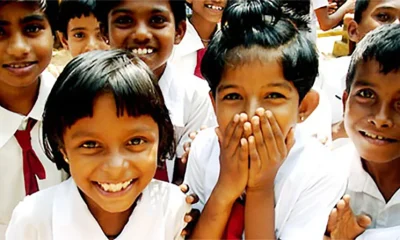
 Opinion7 days ago
Opinion7 days agoGoing easy on Year 5 Scholarship trial
-

 News5 days ago
News5 days agoService chiefs won’t get extensions; scrapping of CDS Office confirmed
-

 Editorial7 days ago
Editorial7 days ago‘Swindlers List’
-
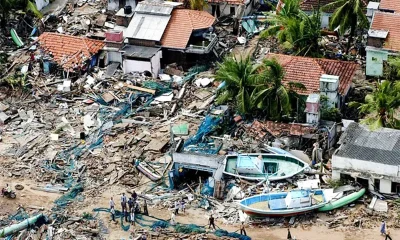
 Features7 days ago
Features7 days agoA 20-year reflection on housing struggles of Tsunami survivors
-
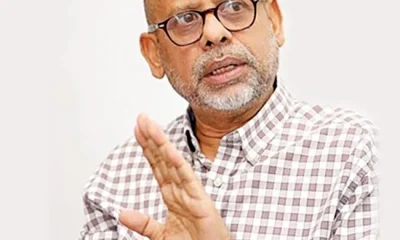
 News7 days ago
News7 days agoMost bribery cases fall through owing to CIABOC’s lapses
-

 Editorial6 days ago
Editorial6 days agoGood riddance!
-
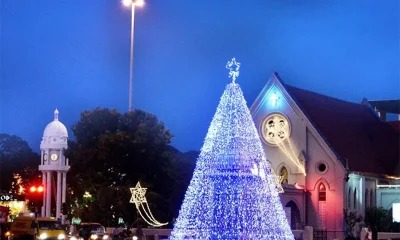
 Features2 days ago
Features2 days agoThe recovery has begun
-

 Business4 days ago
Business4 days agoSupporting the Increase in Withholding Tax: A Step Toward Strengthening Sri Lanka’s Tax System












